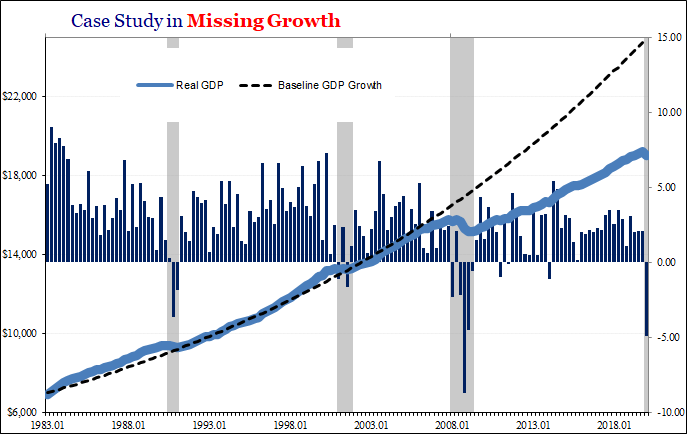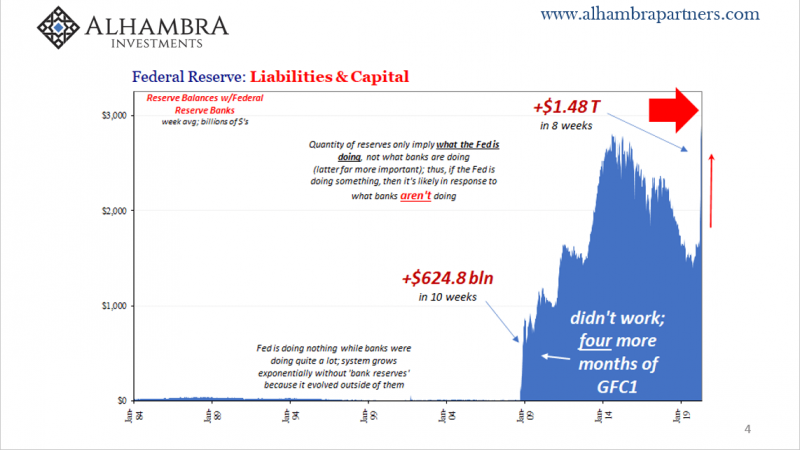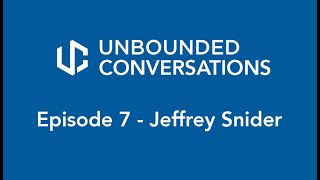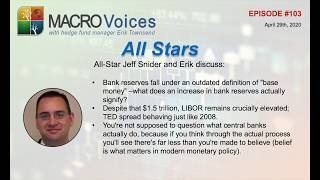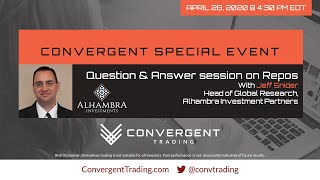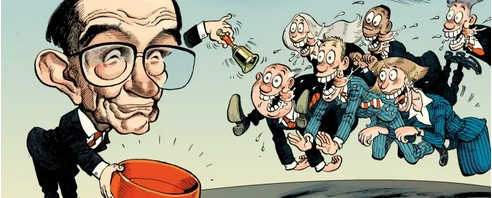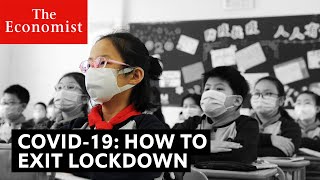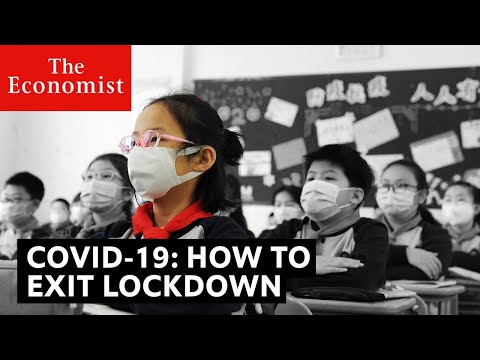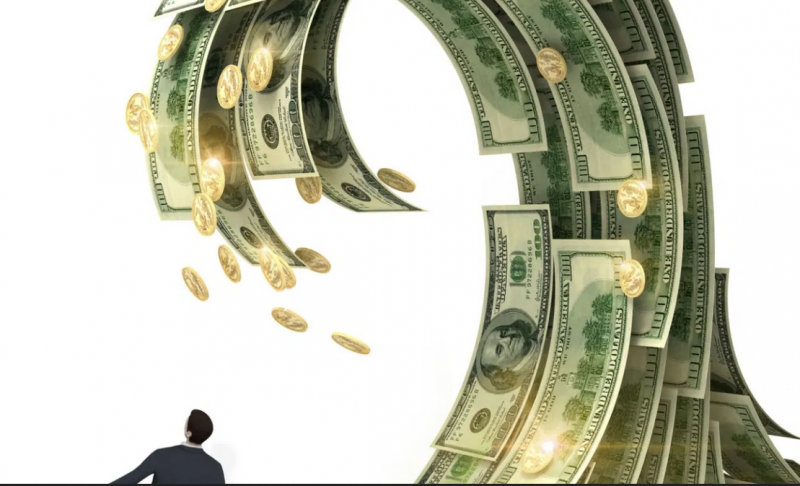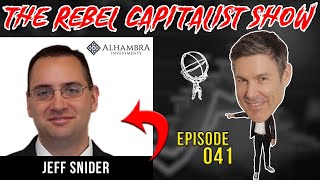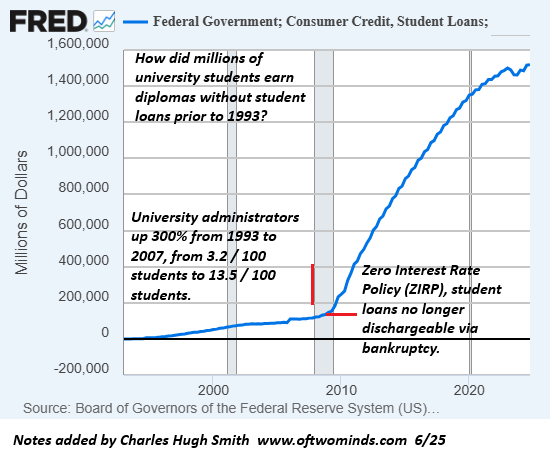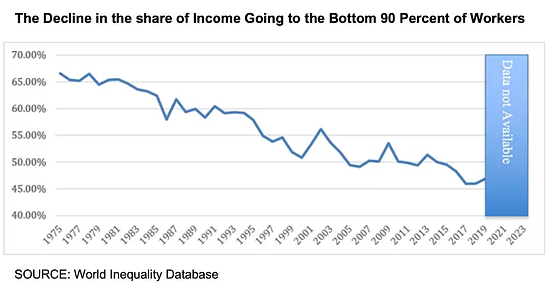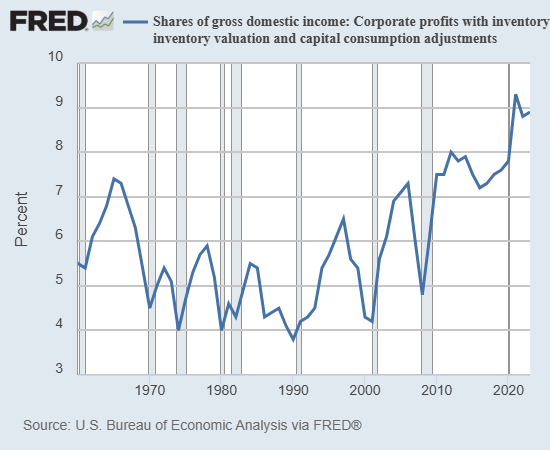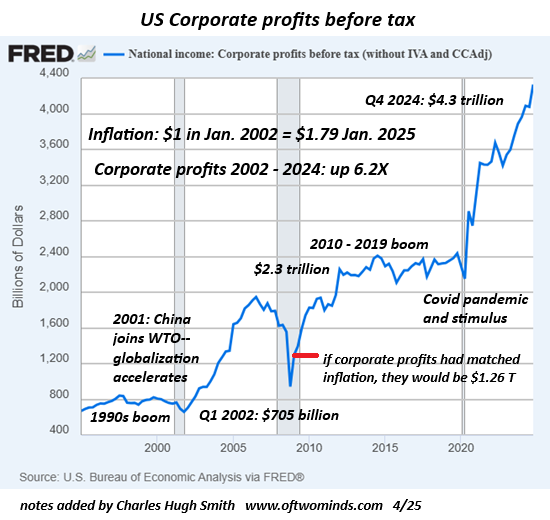Category Archive: 5) Global Macro

GDP + GFC = Fragile
March 15 was when it all began to come down. Not the stock market; that had been in freefall already, beset by the rolling destruction of fire sale liquidations emanating out of the repo market (collateral side first). No matter what the Federal Reserve did or announced, there was no stopping the runaway devastation.
Read More »
Read More »
COT Black: No Love For Super-Secret Models
As I’ve said, it is a threefold failure of statistical models. The first being those which showed the economy was in good to great shape at the start of this thing. Widely used and even more widely cited, thanks to Jay Powell and his 2019 rate cuts plus “repo” operations the calculations suggested the system was robust.
Read More »
Read More »
How to stop plastic getting into the ocean | The Economist
Plastic pollution poses a major threat to ocean life. Meet the engineers who are using rubbish-guzzling boats to stem the flow at its source. Read more here: https://econ.st/3d0bjCe
Click here to subscribe to The Economist on YouTube: https://econ.st/2xvTKdy
For more from Economist Films visit: http://films.economist.com/
Read More »
Read More »
How to stop plastic getting into the ocean | The Economist
Plastic pollution poses a major threat to ocean life. Meet the engineers who are using rubbish-guzzling boats to stem the flow at its source. Read more here: https://econ.st/3d0bjCe Click here to subscribe to The Economist on YouTube: https://econ.st/2xvTKdy For more from Economist Films visit: http://films.economist.com/
Read More »
Read More »
Unbounded Conversations Episode 7 – Jeffrey Snider
Alhambra Investments CIO Jeffrey Snider joins Zach & Jack for the seventh installment of Unbounded Conversations to discuss shadow money and its effects on the global economy.
The Unbounded Conversations video series features discussions between Unbounded Managing Partner Zach Resnick, Principals Dave Mullen-Muhr & Jack Laskey, & various guests building businesses on Bitcoin. In this series they discuss the possibilities of what...
Read More »
Read More »
Restricted Market Trading Comments
By Dara O’Sullivan, Derrick Leonard, and Ilan Solot. As the week commences, a few markets such as Sri Lanka and Philippines are extending their lockdown periods while others such as Nigeria and Kenya continue to experience USD liquidity issues. Please see comments below.
Read More »
Read More »
All-Stars #103 Jeff Snider: The Myth of Central Bank Market Support (and liquidity)
Download chartbook: https://bit.ly/2YcW0lo
Alhambra Investments YouTube channel: https://bit.ly/2yU8Lqo
Please visit our website https://www.macrovoices.com to register your free account.
Read More »
Read More »
Follow-Up Question and Answer Session on Repos with Jeff Snider-April 28, 2020
FuturesTrader71 meets with Jeff Snider, head of Global Research at Alhambra Investment Partners to review follow up questions from the Repo market webinar held on April 15, 2020.
Read More »
Read More »
With Superfluous Demand in Free-Fall, What’s the Upside of Re-Opening a Small Business?
Since superfluous demand was the core driver of most consumer spending, and that demand is in free-fall, what's the upside of re-opening? The mainstream view assumes everyone will be gripped by an absolutely rabid desire to return to their pre-pandemic frenzy of borrowing and spending and consuming, the more the better.
Read More »
Read More »
The Puppet Show Is Powerful
I never said it wasn’t powerful. What I continue to show is that it doesn’t work. Ben Bernanke kept his job because despite the carnage, in times of turmoil people are willing to give anyone a second chance. And if the turmoil never ends, so much the luckier – for him.
Read More »
Read More »
Covid-19: the right way to leave lockdown | The Economist
Governments are starting to ease restrictions designed to curb covid-19. But with most of the world still vulnerable to the virus, what's the right way to leave lockdown? Read more here: https://econ.st/3bMn3YU
Click here to subscribe to The Economist on YouTube: https://econ.st/2xvTKdy
For more from Economist Films visit: http://films.economist.com/
Further reading:
Find The Economist’s most recent coverage of covid-19 here:...
Read More »
Read More »
Covid-19: the right way to leave lockdown | The Economist
Governments are starting to ease restrictions designed to curb covid-19. But with most of the world still vulnerable to the virus, what’s the right way to leave lockdown? Read more here: https://econ.st/3bMn3YU Click here to subscribe to The Economist on YouTube: https://econ.st/2xvTKdy For more from Economist Films visit: http://films.economist.com/ Further reading: Find The Economist’s most …
Read More »
Read More »
Dollar Remains Under Pressure as Risk-on Sentiment Persists
The death toll from the virus continues to trend lower in Europe and the US; the dollar remains under some pressure. The Fed announced an expansion of its Municipal Liquidity Facility (MLF); regional Fed manufacturing surveys for April continue to roll out; other data will be reported.
Read More »
Read More »
The Crash Has Only Just Begun
Everything, including a rational, connected-to-reality, effective financial system, is on back-order and unlikely to ship any time soon. While the stock market euphorically front-runs the Fed and a V-shaped recovery, the reality is the crash has only just begun.
Read More »
Read More »
Drivers for the Week Ahead
The FOMC meets Wednesday; first look at Q1 US GDP comes out Wednesday; weekly jobless claims Thursday are expected at 3.5 mln vs. 4.427 mln last week. Italy dodged a bullet last Friday; ECB meets Thursday; eurozone reports Q1 GDP and April CPI data ahead of the ECB decision; Sweden’s Riksbank meets Tuesday.
Read More »
Read More »
Jeff Snider 2: the FED’s main tool since 2008 is psychology
Jeff Snider was talking today about what the FED is capable of doing. How the FED bureaucracy works. How they buy things. When the system broke. And what the FED is actually doing. May surprise you.
Read More »
Read More »
Thoughts on the Potential Market Impact of US Downgrades
Our sovereign rating model suggests the US will lose its AAA/Aaa rating. With fiscal stimulus efforts continuing with this latest $484 bln package, the case for downgrades just keep getting stronger but the timing is unclear. How might markets react? We look back to 2011 for some clues.
Read More »
Read More »
Jeff Snider (Macro/Repo/Eurodollar NINJA!) Rebel Capitalist Show Ep. 41!
Jeff Snider reveals insights ?YOU CAN'T AFFORD TO MISS! ?This interview with Jeff Snider is absolutely packed with knowledge bombs!! Jeff and I discuss ALL TODAYS HOT TOPICS, how the unemployment rate can be deceiving and if you look at the clues in the bond market and the oil market you can get a better idea of where the stock market is headed. Jeff is truly in a league of his own and he shares an incredible amount of his wisdom and knowledge...
Read More »
Read More »
Dollar Steady as Global Economy Falls Off a Cliff
The virus news stream is negative today; the dollar is trying to build on its recent gains. Weekly jobless claims are expected at 4.5 mln vs. 5.245 mln last week; regional Fed manufacturing surveys for April continue to roll out. ECB confirmed reports that it will accept sub-investment grade debt as collateral; EU leaders will hold a video conference today.
Read More »
Read More »
AxisOfEasy Salon #1: Hypernormalisation, Legitimacy and Simulacrum
The first episode in the AxisOfEasy Salon and Interviews series with the AoE Contributors: Charles Hugh Smith, Jesse Hirsh and Mark E. Jeftovic.
Read More »
Read More »









